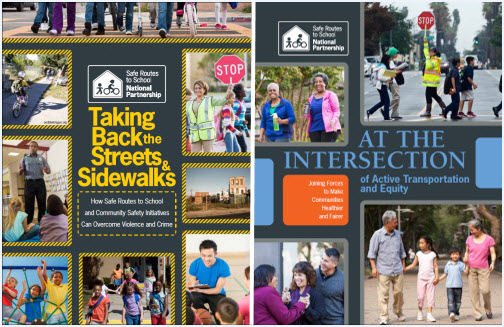
The Safe Routes to School (SRTS) National Partnership has released two reports that explore how social inequities and the threat of violence can impede active transportation in low-income communities and for people of color.
The first is a toolkit for those working on violence prevention and the report examines ways in which Safe Routes to Schools and community safety efforts overlap and complement each other by focusing on approaches to support personal safety for children and teens during their trips. It also includes broader community strategies and explores comprehensive solutions to violence in communities. The report seeks to help SRTS professionals find new allies, resources, and approaches in the movement, while increasing the overall safety and health of children and youth, and ensure that communities become more equitable.
The second explores the transportation inequities that many communities face and how advancing walking and bicycling in low-income communities and communities of color can improve residents' health and expand their opportunities. It explains why equity and active transportation matter, addresses tensions that may arise when working to advance active transportation in an equitable way, describes opportunities for increasing equity in the field of active transportation, and explores some of the programs and initiatives doing this work successfully.